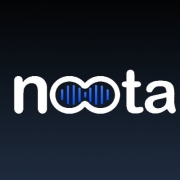Speech-To-Text Services convert spoken language into written text, enhancing accessibility and operational efficiency across sectors. These solutions are essential in modern digital transformations, providing automated transcription capabilities that save time and resources.
The Speech-To-Text market offers a range of solutions tailored to diverse needs, including real-time transcription, batch processing, and integration with various software applications. Users often highlight the ease of integration, high accuracy rates, and robust customization options that suit specific industry requirements.
What are the key features of Speech-To-Text Services?In industries like healthcare, education, and legal services, implementing Speech-To-Text solutions helps in maintaining comprehensive records, enhancing student engagement with transcripts, and supporting legal documentation processes accurately and efficiently.
Organizations benefit from Speech-To-Text Services by automating processes that streamline operations, improve content accessibility, and provide enhanced data analysis capabilities, contributing to overall growth and efficiency.
| Product | Market Share (%) |
|---|---|
| Microsoft Azure Speech Service | 20.9% |
| Deepgram | 19.4% |
| Google Cloud Speech-to-Text | 15.9% |
| Other | 43.800000000000004% |
























Speech-To-Text Services streamline workflows by converting spoken language into accurate text in real-time. This capability allows you to quickly transcribe meetings, customer interactions, and voice notes, which reduces manual note-taking and increases efficiency. By integrating these services with business applications, you can automate certain tasks, such as generating reports and tracking communication, enhancing overall productivity.
Can custom vocabularies enhance the accuracy of Speech-To-Text Services?Custom vocabularies can significantly enhance the accuracy of Speech-To-Text Services by tailoring the recognition models to understand specific industry jargon, product names, and unique terminologies used within your organization. This results in more accurate transcriptions, improving the quality of data collected during business operations and supporting more effective decision-making processes.
What are the security considerations for using Speech-To-Text Services?When using Speech-To-Text Services, it's crucial to consider data privacy and security. You should ensure that APIs and applications comply with industry standards and regulations to protect customer information and sensitive data. Opt for services that offer encrypted data transmission and storage, and check for features like access control and data residency options to align with your company's security policies.
How can Speech-To-Text Services be integrated with existing software solutions?Speech-To-Text Services can be easily integrated with existing software through APIs, making it possible to enhance software capabilities with voice recognition features. For instance, integrating these services with CRM and ERP systems can streamline data entry, automate note-taking during client interactions, and facilitate better knowledge sharing across departments. Tailored APIs can ensure seamless integration and compatibility with your software stack.
What is the role of AI in improving the quality of Speech-To-Text Services?AI plays a crucial role in improving the quality of Speech-To-Text Services by employing machine learning algorithms to continuously enhance speech recognition accuracy. These algorithms learn from vast datasets, adapting to diverse accents, speech patterns, and contextual cues. As AI technology advances, you can expect consistently better precision and understanding, enabling more accurate and nuanced transcriptions that are crucial for professional settings.